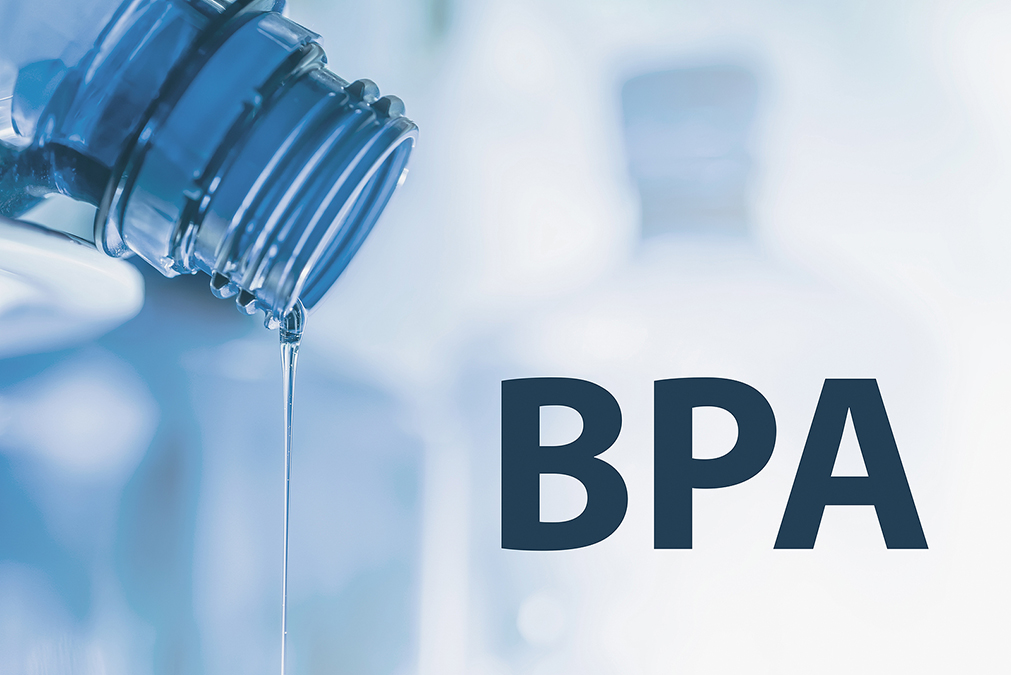 Numerous studies have found that specific type of common chemicals raises blood pressure.
Numerous studies have found that specific type of common chemicals raises blood pressure.
So, health advocates have been pushing a supposedly healthier option.
But a study that has been accepted for presentation at ENDO 2020, the Endocrine Society’s annual meeting, has now shown that supposedly healthier option is just as bad.
Fortunately, there is a very simple, healthy alternative—one that our grandparents used.
BPA is a chemical from which plastic is made. It hardens plastic and is used in almost everything, from water bottles and food containers to the linings of canned foods and drinks to compact discs.
Previous studies discovered that most people have BPA in their bodies. BPA is harmful because it mimics the hormone estrogen and thus causes a rise in blood pressure.
The European Union and Canada have banned BPA use in baby bottles for safety reasons, and many of the states in the US have followed their example with bans on its use in baby bottles, sippy cups, infant formula packaging, and food containers used for the storage of food for children below the age of four.
Manufacturers have replaced BPA with chemicals like bisphenol S (BPS) and bisphenol F (BPF)—names that hardly inspire confidence.
Researchers from the University of Georgia conducted a study in which they exposed pregnant rats to BPA, BPS, BPF, or saline as a control group.
They followed the offspring of these rats to observe the effects of these chemicals on their blood pressure. After the rats reached adulthood, the researchers implanted devices to measure the rat’s blood pressure for 11 weeks.
During the 11 weeks, the researchers observed that those rats exposed to any of the three chemical types had substantially higher systolic and diastolic blood pressure than those only given the saline.
Daytime systolic pressure was high in the BPA group, and diastolic pressure was high in the BPS and BPF groups. Heart rate increased in all groups, especially in the BPS group.
This means that it is important to avoid these substitute chemicals while pregnant if you want your children to grow up without this potential heart complication—but avoiding plastic is easier said than done.
It’s not only pregnant women who should worry.
Research seems to show these chemicals have the same effect on people of all ages, maybe especially elderly who are the most vulnerable for high blood pressure.
So, for ultimate health, avoid all types of plastic as much as possible when it comes to food—and opt instead for glass or steal.

 Overcoming IBD
Overcoming IBD Multiple Sclerosis
Multiple Sclerosis Banishing Bronchitis
Banishing Bronchitis Gum Disease Gone
Gum Disease Gone Overcoming Onychomycosis
Overcoming Onychomycosis Neuropathy No More
Neuropathy No More The Prostate Protocol
The Prostate Protocol Brain Booster
Brain Booster
 Ironbound
Ironbound
 Solution for Shingles
Solution for Shingles
 The Bone Density Solution
The Bone Density Solution
 The Ultimate Healing Protocol
The Ultimate Healing Protocol
 The Parkinson's Protocol
The Parkinson's Protocol
 The Chronic Kidney Disease Solution
The Chronic Kidney Disease Solution
 Overthrowing Anxiety
Overthrowing Anxiety The Fatty Liver Solution
The Fatty Liver Solution The Hypothyroidism Solution
The Hypothyroidism Solution
 The End of Gout
The End of Gout The Blood Pressure Program
The Blood Pressure Program
 The Oxigized Cholesterol Strategy
The Oxigized Cholesterol Strategy
 Stop Snoring And Sleep Apnea Program
Stop Snoring And Sleep Apnea Program
 The Arthritis Strategy
The Arthritis Strategy The Vertigo & Dizziness Program
The Vertigo & Dizziness Program The 3-Step Diabetes Strategy
The 3-Step Diabetes Strategy Hemorrhoids Healing Protocol
Hemorrhoids Healing Protocol The Erectile Dysfunction Master
The Erectile Dysfunction Master Weight Loss Breeze
Weight Loss Breeze The IBS Program
The IBS Program The Insomnia Program
The Insomnia Program The Migraine and Headache Program
The Migraine and Headache Program The Neck Pain Solution
The Neck Pain Solution The Menopause Solution
The Menopause Solution The Ejaculation Master
The Ejaculation Master The TMJ Solution
The TMJ Solution The Acid Reflux Solution
The Acid Reflux Solution The Fibromyalgia Solution
The Fibromyalgia Solution The Psoriasis Strategy
The Psoriasis Strategy